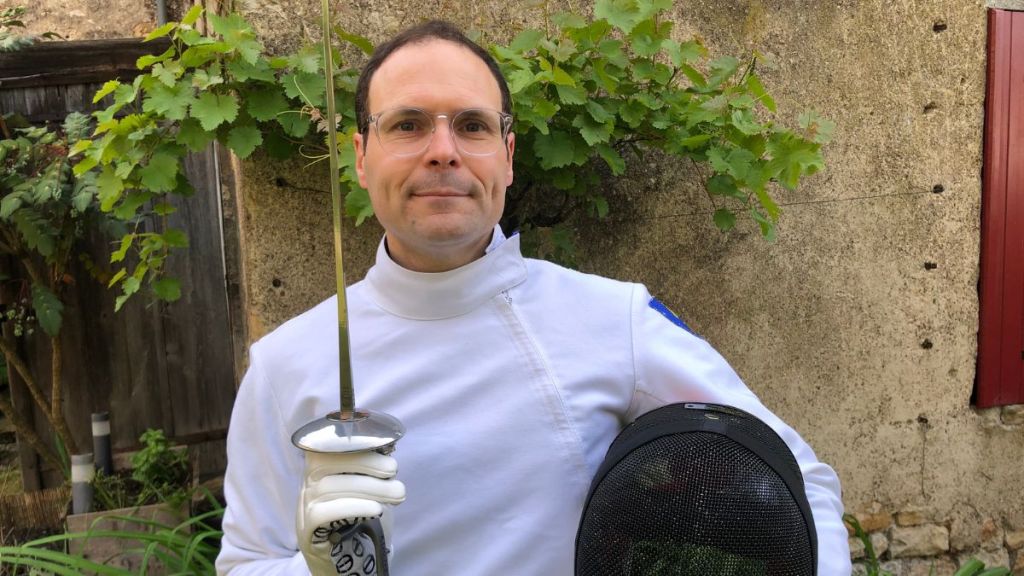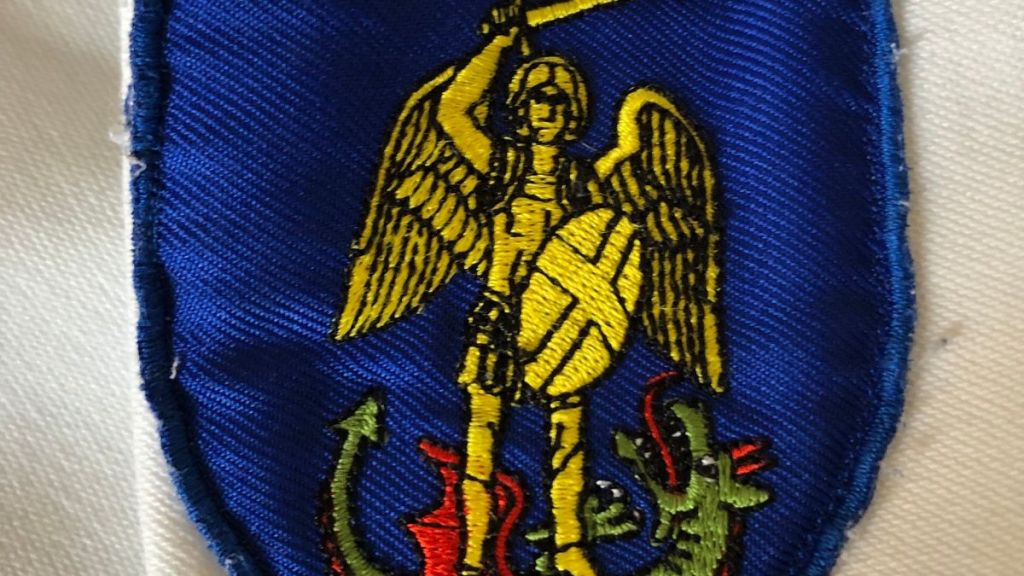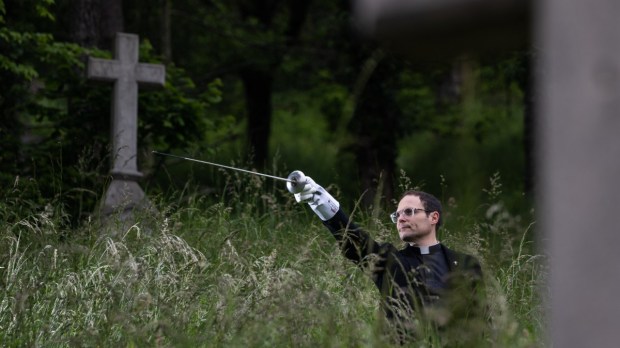At first glance, Franck Ruffiot looks like any other fencer. He wears a whitelamé jacket and black protective mask, with his foil in hand. However, what his opponents at the European Veteran Fencing Championships (which took place in mid-May in Thionville, France) probably didn’t know was that Franck Ruffiot is a priest.
The 45-year-old serves several Catholic parishes in the Besançon diocese, is an episcopal vicar, and teaches theology in Paris. But once a week, he swaps his priestly vestments for his passion: fencing. “I’ve been fencing for 10 years,” he tells Aleteia, “after discovering the sport by chance while studying in Fribourg, Switzerland.”
He originally wanted to take up a shooting sport, but decided to pursue fencing due to a lack of available courses. “I got hooked right away!” confesses Fr. Ruffiot, who now ranks second in his age group for the Bourgogne-Franche-Comté region. “This sport, which is both noble and demanding, shows the importance of a fighting spirit and showing respect for one’s opponents. It combines strategy, technical skills, and physical power,” he adds.

There are three weapons in fencing — the épée, the foil and the sabre — but Abbé Ruffiot prefers the foil because “thanks to conventional rules of right-of-way, it allows for a kind of dialogue between the two opponents, offering a game of questions (attacks) and answers (parries).”
The priest, who also rides a motorcycle, assures us that when his opponents learn that he is a priest, they always have a friendly attitude towards him. But that doesn’t mean they let him win.
From spiritual combat to sports combat
Some people are surprised to see a priest cross blades in this way. Fr. Ruffiot has an answer for them: “The Church is not indifferent to any human activity, so it’s quite normal for a priest to engage in social activities and play sports. I think it’s good, even necessary, for priests to have an activity outside their apostolate, their mission. It gives them a form of rest, while anchoring them in a different kind of closeness to their contemporaries. … In fencing, which is a combat sport, as in the spiritual life, you have to fight, correct yourself, listen to the advice of others, and progress,” he explains.
“I’m not a knight or a saint, but I think you can symbolically combine combat sports with spiritual combat,” he says with a smile, adding that fencing is not an end in itself for him. “If this sport can give me more impetus and strength to serve my parishioners and bring me closer to God … let’s go for it!”
Although Fr. Ruffiot is not a sports chaplain, he’s also happy to answer questions about the faith from his comrades. He even baptizes and presides over marriages for competitors. “I also sometimes symbolically bless the weapons of my comrades before the competition, to ask God that we may all play fairly and not hurt each other.”
He explains that he does not invoke any particular saint. Nevertheless, St. Michael the Archangel, patron saint of fencers, watches over him while he fences. A shield depicting the saint is embroidered on the priest’s fencing uniforms.

Fr. Ruffiot says he also has no specific prayers that he recites before his duels. “I reserve prayers for things other than fencing: for my parishioners, for peace in the world…” Although he doesn’t take part in competitions often, as most of them take place on Sundays, he approaches any fencing match that he does enter with humility. “If I don’t get first place, last place suits me just fine. The last shall be first … Right?” he says with a smile.


